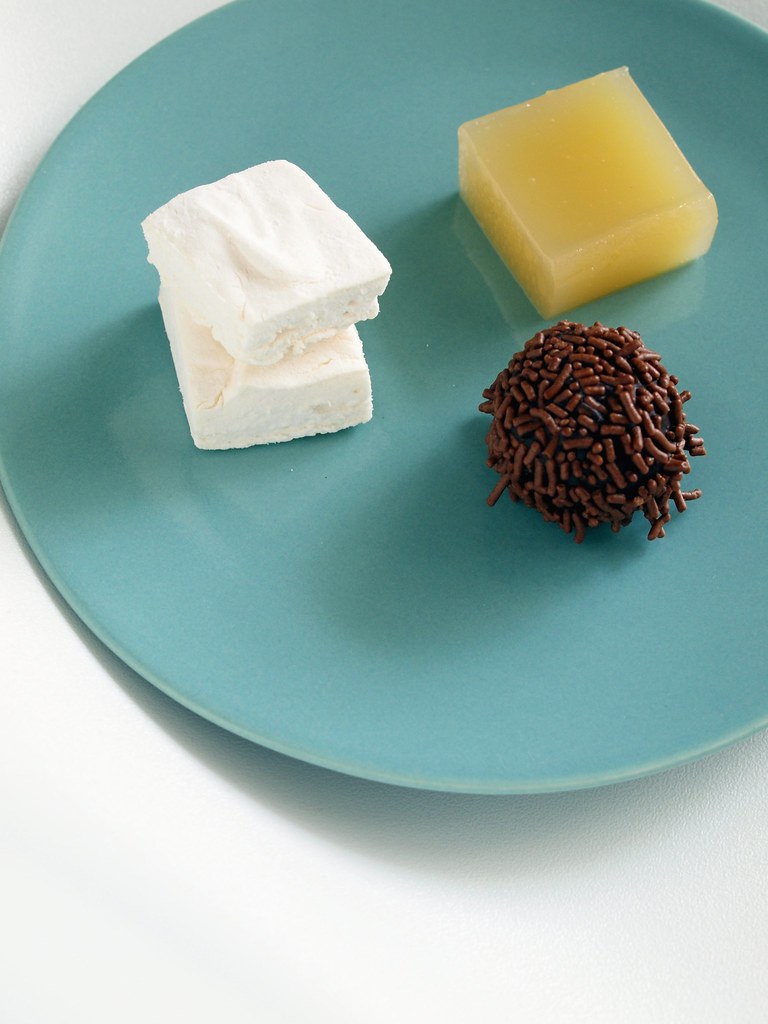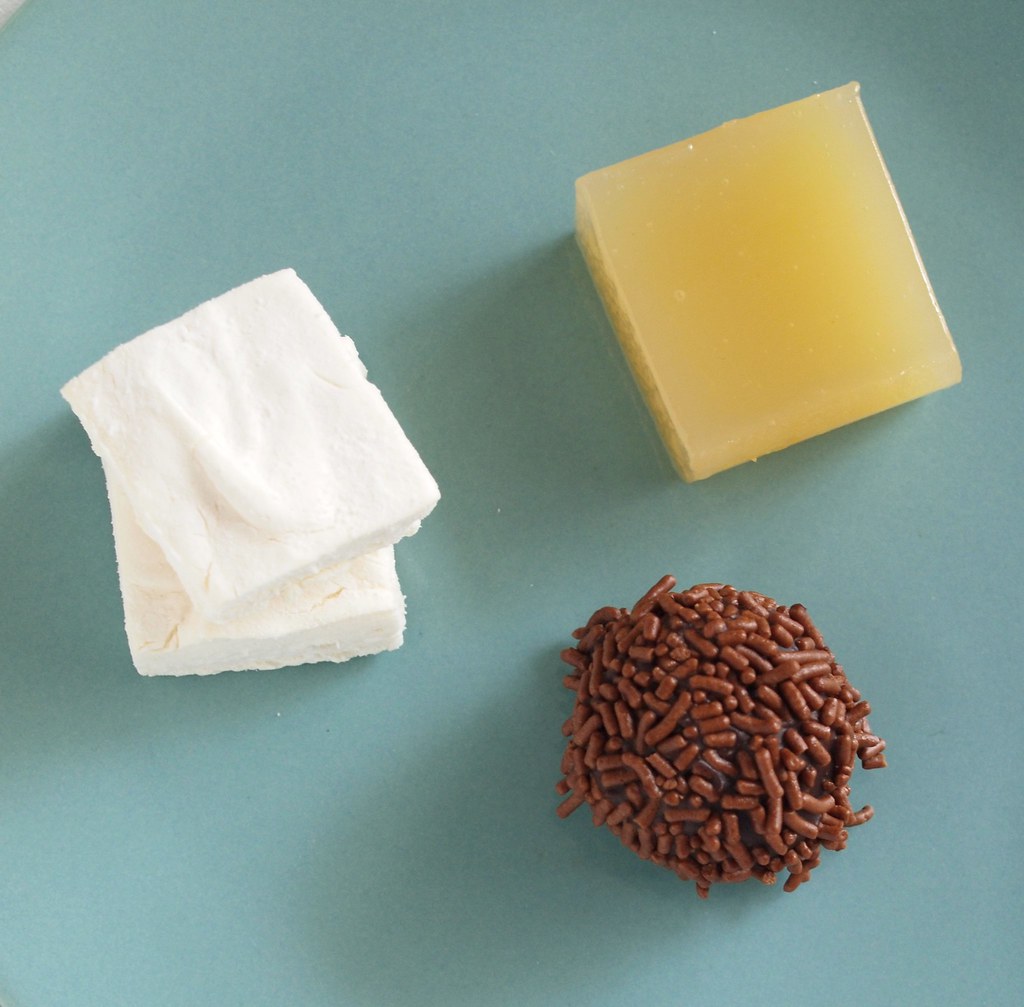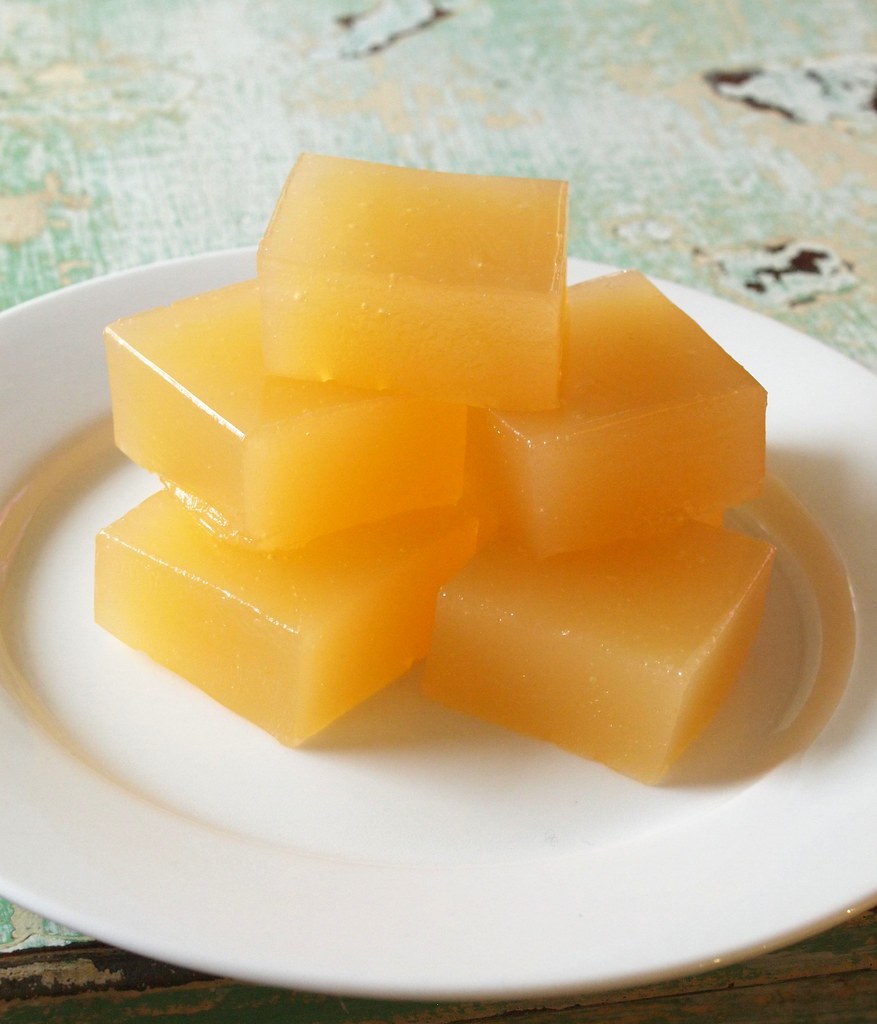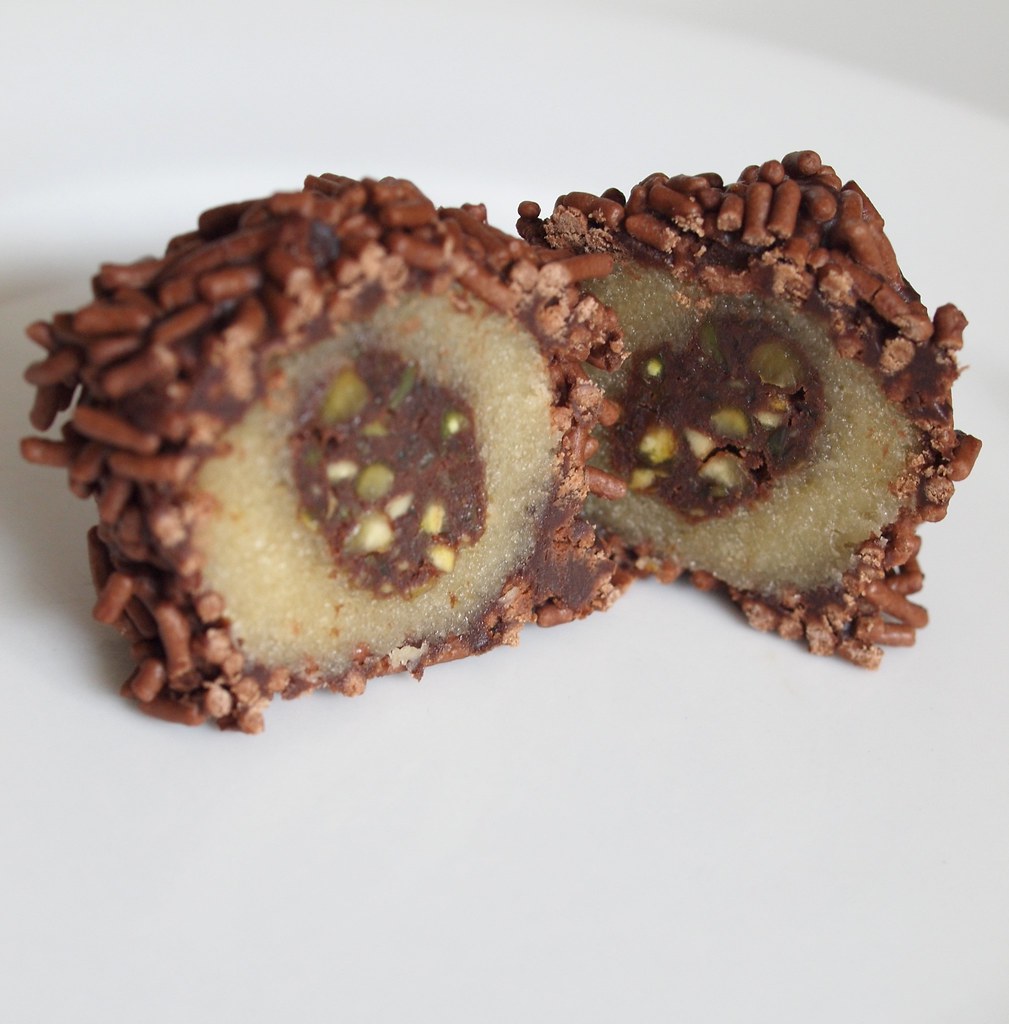Apricots And Chaos
Saturday, August 27, 2011
Sometimes, cakes emerge cleanly from their tins, without
leaving crumbs lingering in corners. Sometimes, sauces thicken at just the
right time, and don’t bubble away to a burnt and smoking nothing the moment you
turn your back. Sometimes, the steak is perfectly cooked when you slice into
it. And sometimes, the words flow like gravy over roast chicken.
Sometimes, though, they don’t. And what happens then?
Practising. Pondering. Howling at the moon. Furtive baking in the tight
crevices in between “real life”. Hoping that you haven’t talked so much that
you’ve used up your lifetime’s quota of words already.
Only the foolish might take on bubbling sugar in such a
frame of mind. The foolish… or the daring. Daring Bakers dragged me from a
reluctant but accidental baking hiatus, and tipped me into sweetness and
stickiness. It didn’t turn out quite the way I imagined, but, in the midst of
chaos, it turned out at all and, sometimes, that’s more than enough to be
grateful for.
The August 2011 Daring Bakers’ Challenge was hosted by Lisa
of Parsley, Sage, Desserts and Line Drive and Mandy of What the Fruitcake?!.
These two sugar mavens challenged us to make sinfully delicious candies! This
was a special challenge for the Daring Bakers because the good folks at
http://www.chocoley.com offered an amazing prize for the winner of the most
creative and delicious candy!
I wanted to make sweets that tasted real, with a concentrated but subtle flavour from ingredients which
don’t have unpronounceable names, and with delicate colouring rarely encountered
in the confectionery aisle. Bright, clear, sunny tastes called out to distract
me from the tail end of winter. There was a vague idea of making variations on
a theme based around one core element. And then a package of apricot nectar, in
those little pale blue glass bottles, sealed the deal and the experimenting
began.
Eventually, a trio of apricot confections (apriconfections?)
emerged from the kitchen. There were pale clouds of apricot marshmallow, glassy
vivid squares of apricot Turkish delight and stickily dangerous (or should that be dangerously sticky?) chocolate
ganache truffles filled with apricot marzipan and chocolate pistachio paste.
If it wasn’t quite the perfect apricot assiette I’d
imagined, it was still a more than satisfying sugar high. The Turkish delight,
in particular, turned out especially well, with a soft chewy-but-melting
texture, a jewel-like glow and an unmistakeable apricot flavour. The
marshmallows weren’t quite as fluffy as they’ve been on previous occasions and
were so subtle that the apricot could’ve been easily mistaken or overlooked. A
little added colour would have perked them up and added the power of suggestion
to enhance the taste (although I’d been keen to try to keep the sweets
“natural”, without artificial colours, flavours, or added glucose or corn syrup
– not from any particular principle other than a desire to see how it turned
out). The truffles were appropriately rich and sticky, with the apricot
marzipan matching well with the dark chocolate coating, and some crunch added
by the chocolate hail on the outside and the crushed pistachios lurking within.
So, if you’d like to try making some apricot confections of
your own, this is how they were made…
Apricot Turkish
Delight
Adapted from a recipe for
passionfruit Turkish delight by Jane and Jeremy Strode published in Good Living
on 21 June 2011
What you need
2 cups* / 440 g castor sugar
3 cups / 750 ml water
¼ tsp cream of tartar
1 tbsp lemon juice
¾ cup / 90 g cornflour
250 g icing sugar
18 g / 2 tbsp powdered gelatine
120 ml apricot nectar, refrigerated
What to do
1.
Line a square or oblong baking tin or container
with baking paper (I used a 20 cm (8 inch) square cake tin).
2.
Put the caster sugar and ½ cup of the water in a
saucepan and cook, stirring occasionally, on a medium heat until the sugar
dissolves. Increase the heat to medium-high and bring the sugar syrup to the
boil. Allow the syrup to boil until it reaches 115 °C (240 °F). Stir in the
cream of tartar and lemon juice (being careful in case the mixture spits a
little when you add them).
3.
In another saucepan, combined the cornflour and
icing sugar with another ½ cup of water and whisk until smooth. Put the kettle
on to boil the remaining 2 cups of water, then whisk this into the cornflour
mixture. (Note: this saucepan has not yet been put on the heat).
4.
Add the sugar syrup mixture to the saucepan
containing the cornflour mixture. Whisk over medium heat for around 30 minutes,
after which the mixture will be thicker and more translucent. (Note: it’s already quite thick and translucent when
you start, but will become more so as it’s cooked – it will end up smooth, but
quite gloopy. Keep whisking it very regularly – it doesn’t have to be so continuous it gives you a cramp in
your arm, but it should be watched carefully and whisked a lot. It will glump
and bubble like a brightly coloured version of the Rotorua mud pools, so be
careful not to get splashed).
5.
While the mixture bubbles away (and in between
whisking), combine the gelatine and cold apricot nectar and stir until smooth.
Allow to sit for 10 minutes. When the bubbling mixture reaches the desired
thickness, whisk in the apricot nectar and gelatine.
6.
Pour the mixture into the prepared tray. Give it
a jiggle so that the mixture levels out, and plonk it down firmly onto the
bench top a couple of times to dislodge any air bubbles. Allow to set (either
at room temperature or in the fridge). (If putting it in the fridge, be careful
not to seal a lid over it, as condensation will form on the surface of the
Turkish delight.
7.
When the Turkish delight is firm, slide it
(still attached to the paper) from the tray, carefully peel away the paper, and
cut with a large sharp knife dipped in hot water or (even better) a pizza
cutter. (Note: from an 8 inch tin, cutting 36 (6 x 6) or 49 (7 x 7) squares gives
good-sized pieces. The original recipe suggests 24 pieces, but looks like it
uses a much deeper container; still, that would be a big sugar hit in one go!).
Apricot Marshmallows
Based on a recipe by
Sugar Plum
What you need
18 g / 2 tbsp powdered gelatine
½ cup / 125 ml apricot nectar, refrigerated
2 cups / 385 g white sugar
½ cup / 125 ml water
1 tsp golden syrup
Olive oil spray
Icing sugar for dusting
What to do
1.
Spray a cake tin or deep baking tray with olive
oil spray, and dust thoroughly with a sieved icing sugar It only needs to be a
light coating, but get right into the corners, or the marshmallow will stick –
it tries to stick to everything!
2.
Place the gelatine and cold apricot nectar into
the bowl of a stand mixer and mix on low speed for a minute or two, using the
whisk attachment. (Note: If you have a splash guard for your stand mixer, it’s
a good idea to fit it now, as boiling sugar syrup is something to definitely
keep a safe distance from).
3.
Put the sugar, water and golden syrup in a large
saucepan, and stir over medium heat until the sugar dissolves. Increase the
heat to medium-high and bring to the boil. Allow the syrup to boil until it
reaches 115 °C (240 °F) (this will take around 15 minutes).
4.
With the mixer on low speed, pour the sugar
syrup very carefully into the bowl of the mixer. Once all the syrup has been
added, gradually increase the speed to medium. Beat the apricot and syrup
mixture until it becomes thick, white and glossy and stops increasing in volume
(around 10 – 15 minutes).
5.
Spread the marshmallow mixture into the prepared
tray, and smooth the top with a spatula dipped in hot water. Dust with sieved
icing sugar, and allow to set for at least 4 hours (or overnight).
6.
Carefully prise the set marshmallow from the tin
and cut into squares using a sharp knife or pizza cutter. Dust the cut sides of
the squares in icing sugar so they don’t stick together.
Marshmallows will keep in an airtight container for at least
a week (but will gradually start to dry out as they get older).
Chocolate, Apricot
and Pistachio Truffles
A sticky invention of
the Sticky Penguin, with ganache recipe based on the Daring Bakers
What you need
100 g almond meal
50 g icing sugar
25 ml apricot nectar (approximately)
50 g pistachios, blanched and with shells and skins removed
200 g dark chocolate
200 ml cream
Dark chocolate hail
What to do
1.
To make the apricot marzipan, place the almond
meal and icing sugar in the bowl of a food processor and pulse to combine. Add
the apricot nectar, a little at a time, until the mixture comes together into a
ball that moves freely (but stickily) around the bowl. Wrap in cling film and refrigerate
until required.
2.
Finely chop the dark chocolate and place in a heat-proof
bowl. Heat 130 ml of cream in a small saucepan until it bubbles round the edges
but doesn’t reach a full boil. Pour the hot cream over the chopped chocolate
and stir well until the chocolate is completely melted and the ganache is
smooth.
3.
Finely chop the pistachios, and combine with 60 g
of the ganache. Place in the freezer until the mixture becomes firm.
4.
Heat the remaining 70 ml of cream, and add to
the remaining ganache, stirring in well.
5.
To assemble the truffles, roll the apricot
marzipan into balls (I got 12 balls from the quantity I made). Flatten each
ball and use a ½ teaspoon measure to scoop a sphere of chocolate and pistachio
ganache, and place this in the centre of the marzipan, pinching the marzipan
over it to close it together. Reform the ganache-filled marzipan gently into
evenly shaped balls. Coat the marzipan balls evenly with the thinner, plain
ganache and then roll them in chocolate hail. Refrigerate or freeze until firm
(although the truffles will still be a bit sticky).
* All references to cups in the recipes in this post are
Australian / metric cups (1 cup = 250 ml)












